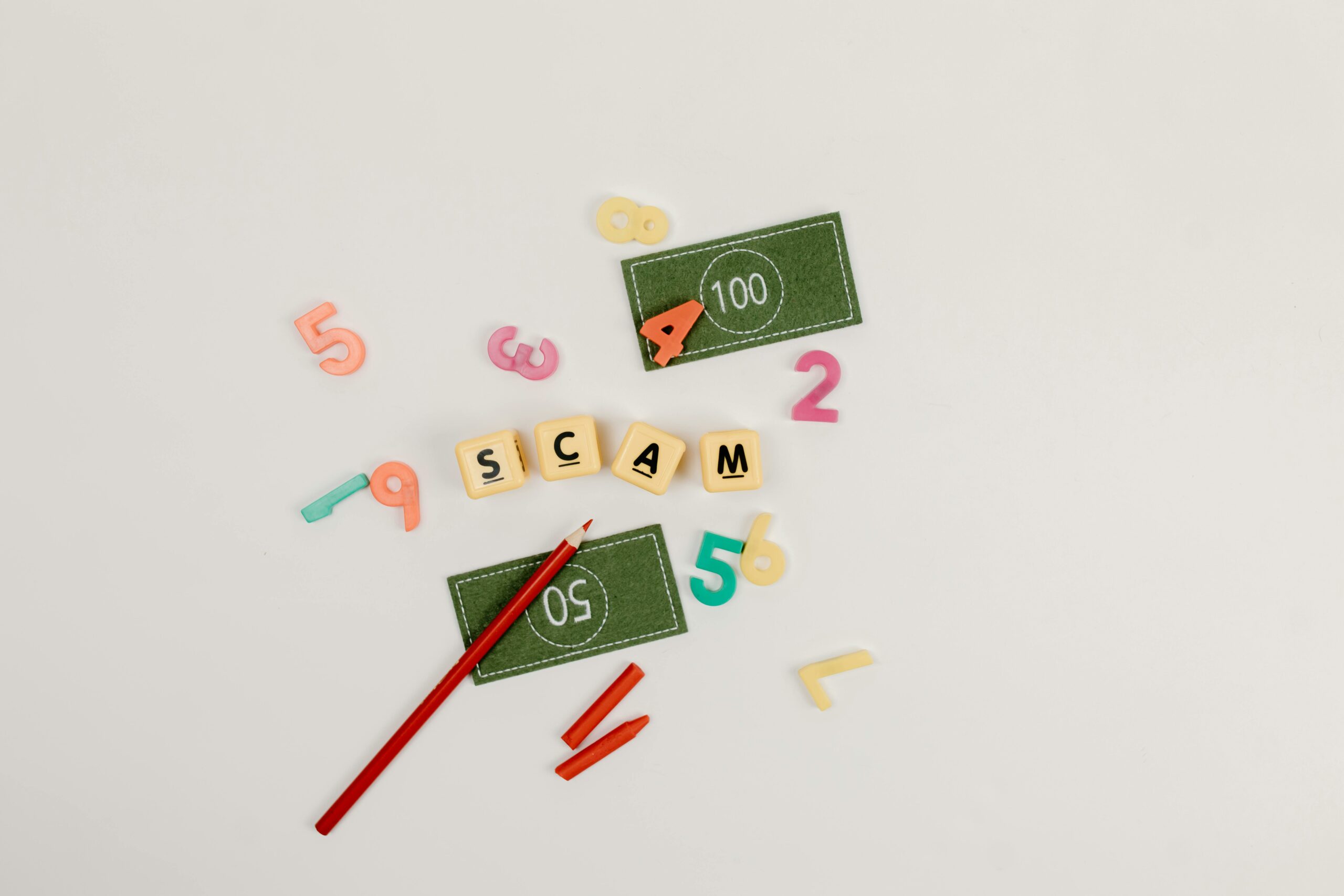Are you curious about how North Hempstead taxes impact your wallet this year? Navigating the complex world of local taxes can be confusing, especially when rates and regulations keep changing. Many residents ask, “What are the current property tax rates in North Hempstead?” and “How do recent tax reforms affect homeowners and businesses?” If you have wondered about these questions, you’re not alone. Understanding North Hempstead property tax assessments and the latest updates on tax exemptions and relief programs could save you hundreds, if not thousands, of dollars annually. Did you know that certain tax credits for seniors and veterans are often overlooked? It’s important to stay informed about the newest tax policies to make smarter financial decisions. Wondering how this year’s budget changes will influence your next tax bill? With rising concerns about local government spending and tax increases, knowing what to expect can put you ahead of the curve. This guide dives deep into everything you need to know about North Hempstead tax rates, deadlines, and insider tips to lower your tax burden. Ready to uncover the secrets behind North Hempstead’s tax system and how to maximize your savings? Keep reading to find out more!
How to Decode North Hempstead Property Taxes: 7 Insider Tips to Slash Your Bill
Alright, so let’s talk about north hempstead taxes — and boy, if you think taxes are boring, well, you might be right, but stick with me here, cause there’s some stuff you probably doesn’t know. Now, North Hempstead, for those who aren’t familiar, is a town located in Nassau County, New York. And like many places out there, they got their own quirky way of taxing folks living there. Not really sure why this matters, but north hempstead property tax rates are kinda a big deal for homeowners.
First things first, the property tax in North Hempstead is based on the assessed value of your property. But here’s the kicker — the assessed value ain’t always the same as what you think your house worth. It’s usually less, but sometimes it surprises you and goes up like crazy. The town assessors use a certain percentage of the market value to figure out what you owe. Confusing? Yup, totally. And it changes. Like, every year it might be different, and that’s when a lot of people gets a big shock when they open their tax bill.
Here’s a quick breakdown table to get the idea clear-ish:
| Element | Description | Notes |
|---|---|---|
| Assessed Value | Percentage of market value | Can be 10-15% or something around there |
| Tax Rate | Set by town and other authorities | Usually expressed in mills (per $1000) |
| Tax Levy | Total amount town needs to collect | Drives the tax rate |
| Exemptions | Reduces taxable value for some | Senior citizens, veterans, etc. |
You might noticed that the exemptions part can really help some people save a buck or two. Maybe it’s just me, but I feel like those exemptions are not explained well enough to regular folks. If you are a senior citizen or a veteran, you can apply for reductions — which is good news, cause paying full taxes can be brutal.
Now, let’s talk about the north hempstead school taxes. This is a beast on its own. School taxes usually make up the biggest chunk of your property tax bill in North Hempstead. And no surprise here — these taxes fund the local public schools, which honestly, everyone wants to be good but somehow always seems to cost too much. The school district gets a separate tax levy, and it’s combined with town and county taxes to make your full bill.
Here is a quick list of what your property tax bill includes:
- School district taxes
- Town of North Hempstead taxes
- Nassau County taxes
- Special district taxes (like fire districts, water districts)
Each of these components has a tax rate, and when you add them all up, you get your final tax bill. Sometimes, it feels like a mystery why some years it jumps up a lot, and other years it barely moves.
One practical tip I learned (the hard way) is to check your north hempstead tax assessment every year because errors happen. If your property was wrongly assessed way too high, you can appeal it. But the process ain’t simple, and you gotta be on top of deadlines and paperwork. Not everybody knows that you can fight back if you think your taxes are unfair.
Here’s a simple flowchart of how that process looks:
Assessors send tax bill → You review bill → If too high, file appeal → Attend hearing → Decision made → Tax bill adjusted or not
Sometimes you win, sometimes you don’t. But trying doesn’t hurt.
Another thing is, people often forget about the payment options. North Hempstead usually allows you to pay your tax bill in installments. You don’t have to pay all at once, which is a relief when your wallet screams. But late payments come with penalties, so don’t procrastinate too much.
For those who want to geek out more, here’s a quick sheet showing estimated tax rates for various parts of North Hempstead (note: these numbers fluctuate yearly):
| District | Estimated Tax Rate (per $1,000) |
|---|---|
| Great Neck | 20.5 |
| Manhasset | 22.3 |
| Port Washington | 21.7 |
| New Hyde Park | 19.8 |
These rates can change, depend on budget needs and voter approvals. So don’t take them as gospel.
Now, since we’re on the topic of money, I gotta mention the dreaded “tax caps.” New York State put some limits on how much property taxes can increase each year, but honestly, sometimes it feels like those caps don’t do much to stop the steady rise. Maybe it’s just me, but it looks like taxes keep climbing no matter what. If you want to dig deeper,
The Ultimate Guide to North Hempstead Tax Rates in 2024: What Every Homeowner Must Know
North Hempstead taxes, huh? If you live or thinking about moving here, you probably been wondering what the heck you’re gonna pay when tax season rolls around. Well, buckle up, because North Hempstead taxes ain’t your average walk in the park. Not really sure why this matters, but the way local taxes stack up here sometimes feels like a puzzle missing some pieces.
Let’s start with the basics — what exactly are you paying for? In North Hempstead taxes, residents usually get hit with property taxes, school taxes, and sometimes special district taxes. These taxes fund everything from your local schools, public safety, road repairs, and even the parks where you walk your dog (or avoid depending on the weather).
Property Taxes in North Hempstead
One of the biggest bummers about living in North Hempstead is the property taxes. They can be pretty high compared to other parts of Long Island. Why? Well, the town has a lot of services and fancy stuff to maintain, so those bills gotta come from somewhere, right?
Here’s a quick breakdown showing how property taxes might be calculated:
| Component | Description | Approximate % of Total Tax Bill |
|---|---|---|
| Town Tax | Local government services | 15% |
| School Tax | Funding for public schools | 60% |
| County Tax | Nassau County services and facilities | 20% |
| Special District Tax | Fire, water, or other special needs | 5% |
I know what you’re thinking — “Wow, 60% for schools? That’s a lot!” Yeah, it is. But maybe it’s just me, but I feel like good schools are worth paying for, even if it pinches the wallet.
What about STAR Exemptions?
If you’re a homeowner, you might have heard about the STAR program. That stands for the School Tax Relief, and it’s supposed to give some breaks on your school taxes. But let me tell you, the paperwork and hoops you gotta jump through sometimes makes it feel like you’re trying to get into a secret club.
Here’s a rough idea how the STAR exemption affect your bill:
| Tax Before STAR | STAR Exemption Amount | Tax After STAR |
|---|---|---|
| $10,000 | $700 | $9,300 |
Not huge, but hey, every little penny saved counts, especially when North Hempstead taxes are already eating into your budget.
Why The Taxes Keep Rising?
Oh boy, this one’s a doozy. Taxes in North Hempstead have gone up steadily over the years, which makes you wonder — where is all the money REALLY going? Some say it’s inflation, others blame increased services, and some just throw their hands up and say “the government just wants more.”
Here’s a chart to show the average property tax increase over the last five years:
| Year | Average Property Tax | % Increase From Previous Year |
|---|---|---|
| 2019 | $7,500 | – |
| 2020 | $7,800 | 4% |
| 2021 | $8,100 | 3.8% |
| 2022 | $8,400 | 3.7% |
| 2023 | $8,700 | 3.6% |
See that? It’s like a slow but steady climb, no big surprises but it adds up over time.
How To Keep Track Of Your North Hempstead Taxes?
If you want to be on top of things (and trust me, you should), you gotta keep track of your tax bills, assessment notices, and any exemptions you might qualify for. The Town of North Hempstead usually mails these out, but sometimes they get lost or ignored until it’s too late.
Here’s a quick checklist to keep you from missing anything:
- Keep all tax bills in one folder (digital or paper).
- Check for assessment notices every year.
- Apply for exemptions like STAR or veteran’s exemptions early.
- Attend local town meetings if you want to know where the money is going.
- Use online portals provided by the town for easy access.
Common Questions About North Hempstead Taxes
Why my tax bill higher than my neighbor’s?
Different assessed values, exemptions, or special district taxes can make a big difference. It’s not always fair, but that’s how it goes.Can I appeal my property tax assessment?
Yes, you can. But it’s a process that takes time and some paperwork. Sometimes you get a reduction, sometimes you don’t.Are there any tax relief programs for seniors?
Yup, there are several
Top 5 Little-Known North Hempstead Tax Deductions That Could Save You Hundreds Today
When it comes to north hempstead taxes, people get really confused and honestly, who wouldn’t? Taxes are like that annoying friend who shows up uninvited, and you gotta deal with them no matter what. So, let’s dive into this mess and try to figure out what’s going on in North Hempstead with all these tax stuff.
First off, North Hempstead is a town in Nassau County, New York, and it got its own way of collecting taxes. You might think, “oh, taxes are just taxes, right?” Nope, not really. Here, you got property taxes, school taxes, and even some special district taxes that can make your head spin faster than you can say “tax refund”. Maybe its just me, but I feel like they make it harder on purpose.
Types of North Hempstead Taxes You Should Know About
| Tax Type | Description | Who Pays? | Average Rate (approx.) |
|---|---|---|---|
| Property Taxes | Based on the value of your house or land. | Homeowners | 2.5% of assessed value |
| School Taxes | Funds local schools, separate from property tax. | Property owners with kids or not | Varies by district |
| Special District Taxes | For services like fire, water, or garbage. | Residents in those specific districts | Depends on district |
Property taxes in North Hempstead is one of the highest in the state, and I’m not joking. You’d think that with all these taxes, the roads would be perfect or schools would be flawless, but nope, potholes and budget cuts everywhere. Not really sure why this matters, but if you live in a waterfront area, taxes tend to be even crazier.
How Property Taxes Are Calculated in North Hempstead
The town assessors determines the value of your property, but sometimes it feels like they just pull numbers out of thin air. The assessed value is then multiplied by the tax rate, and boom, you get your tax bill. Here’s a quick formula:
Property Tax = Assessed Value x Tax Rate
For example, if your house is assessed at $500,000 and the tax rate is 2.5%, your property tax would be:
$500,000 x 0.025 = $12,500 per year.
That’s a lot of money, especially if you got a mortgage and all the other bills to pay. I bet some folks just cry a little when they open the tax bill.
School Taxes: Why Are They Separate?
In North Hempstead, school taxes are a separate chunk from your property taxes and they can be a real pain to understand. Basically, these taxes go directly to funding local public schools — which, surprisingly, some people complain about even if their kids don’t attend those schools.
Here’s a quick list why school taxes can be confusing:
- Different school districts have different tax rates.
- You might pay more if you live in a high-performing district.
- These taxes are usually included in your overall property tax bill but itemized separately.
If you want to get into the nitty-gritty, here’s a simplified example of how school taxes might look on your bill:
| School District | Assessed Value | Tax Rate | School Tax Due |
|---|---|---|---|
| North Shore | $500,000 | 1.2% | $6,000 |
| Great Neck | $500,000 | 1.5% | $7,500 |
Special Districts – Because One Tax Just Isn’t Enough
You thought you were done? Nope. North Hempstead also has special districts which means you might be paying taxes for things like fire protection, garbage collection, or water services. Each special district has its own tax rate and it depends on where exactly you live.
Here are some of the more common special districts you could be paying for:
- Fire Protection Districts
- Garbage Districts
- Water Districts
- Lighting Districts
It’s like a buffet of taxes, but instead of food, you get bills. Fun, right?
Some Practical Tips to Handle Your North Hempstead Taxes
- Check Your Assessment: Sometimes assessors make mistakes. If you think your property is overvalued, don’t be shy, challenge it! It could save you thousands.
- Understand Your School District Tax Rates: Not all school taxes are created equal. Knowing your district’s tax rate can help you plan better.
- Keep an Eye on Special Districts: They can sneak up on you, so make sure you know what services you’re paying for.
- Use Online Tools: North Hempstead has some online portals where you can look up your tax bills and payments. Why not use them
Why Are North Hempstead Taxes So High? Expert Insights and Proven Reduction Strategies
When it comes to north hempstead taxes, oh boy, it can get a bit confusing – like trying to untangle a bunch of Christmas lights after New Year’s. You think you got it all sorted, then bam, another form or fee pops outta nowhere. Taxes here isn’t just about your property or income, it’s a whole ecosystem of fees, assessments, and sometimes just plain ol’ headaches.
So, first things first, North Hempstead is one of those towns where property taxes are a big deal. If you own a home, you gonna want to pay attention to the north hempstead property tax rates, because they can really sneak up on you. The rates vary depending on where exactly you live in the town, the school district, and even the town’s budget for that year. Not really sure why this matters, but it seems like different parts of the same town have different tax rates? Go figure.
Here’s a quick breakdown (not perfect, but you get the gist):
| Area in North Hempstead | Approximate Tax Rate (per $1000 assessed) | Notes |
|---|---|---|
| Great Neck | $24.00 | Higher because of schools |
| Manhasset | $22.50 | Slightly lower than Great Neck |
| Port Washington | $20.00 | More affordable, kinda |
| New Hyde Park | $23.00 | Average for the area |
This table gives you an idea of how taxes changes even within the town. It’s like you’re playing a game of “Where’s the Cheapest Tax?” but spoiler alert: no matter where you go, you’re probably paying a lot.
Now, before you get all annoyed, remember that these taxes contribute to local services – schools, roads, emergency services, parks, and stuff. But sometimes you wonder if the money really goes where it’s supposed to. Maybe it’s just me, but I feel like the potholes on Main Street have been there since forever, despite the taxes.
If you looking to save some cash, you might wanna check eligibility for exemptions. North Hempstead offers a few tax exemptions, like for seniors, veterans, and people with disabilities. Here’s a quick list of common exemptions you can apply for:
- Senior Citizen Homeowners’ Exemption (SCHE)
- Veterans’ Exemption
- STAR Program (School Tax Relief)
- Disability Exemption
Applying for these can be a bit of a pain, paperwork-wise, but it might save you hundreds, if not thousands, every year. And who doesn’t want some extra money in their pocket? Just remember, deadlines are a thing, and missing them means you outta luck until next year.
Let’s talk about the north hempstead school taxes for a sec. These suckers can be the biggest part of your tax bill. For families with kids in public schools, this is a big chunk of change. The schools here are decent, but not sure if it worth the steep price tag – you decide. The school tax rates are calculated separate from general town taxes, which sometimes confuses folks when they look at their bills.
Here’s an example of how a typical tax bill might look for a homeowner:
| Tax Category | Rate (per $1000 assessed) | Amount (assuming $500,000 assessed value) |
|---|---|---|
| Town Tax | $10.00 | $5,000 |
| School District Tax | $15.00 | $7,500 |
| Library District Tax | $1.50 | $750 |
| Special District (e.g., fire, water) | $2.00 | $1,000 |
| Total | $28.50 | $14,250 |
Yes, you read that right — over $14,000 a year in taxes. Makes you wanna cry a little, or at least scream into a pillow.
And don’t get me started on assessments. Every few years, your property gets reassessed, which can mean your taxes go up, even if your home ain’t changed at all. Sometimes the town reappraises because the market went up, but other times it just feels arbitrary. Like, why do I get punished for my neighbor’s fancy renovations? Life ain’t fair, I guess.
One good tip I can share, if you’re brave enough, is to review your property assessment carefully. If you think it’s too high, you can file a grievance. The process is a bit of a hassle, and you gotta gather evidence (like recent sales numbers, appraisal reports, etc.) but it can lower your bill. Just keep in mind, not everyone who complains wins.
Now, for those who rent in North Hempstead, you might think you’re
Step-by-Step Checklist to Lower Your North Hempstead Tax Bill Before This Year’s Deadline
When you start talking about north hempstead taxes, you quickly realize it’s not just your regular “pay your dues and move on” kinda thing. Nope, it’s a whole world of tax rates, assessments, and sometimes confusing policies that makes your head spin faster than a top. I’m not really sure why this matters, but people around here seem to be obsessed with figuring out exactly how much they owe and why their neighbor’s bill looks so much different than theirs. Spoiler alert: it’s not always clear.
First things first, let’s talk numbers. The north hempstead property tax rates are one of the key players in this game. They vary depending on where exactly you live in the town — which is kinda annoying if you ask me. You might think, “Hey, we’re all in North Hempstead, shouldn’t the taxes be same?” But nope, it’s not that simple. The town is split up into different school districts and special districts, each with their own tax rates, which makes the whole thing look like a giant spreadsheet nightmare.
| District Name | Tax Rate (per $1000) | Notes |
|---|---|---|
| Manhasset School Dist | 27.5 | One of the higher tax rates |
| Great Neck School Dist | 24.3 | Slightly lower, but still high |
| Port Washington Dist | 23.0 | Lower taxes, but rising fast |
| North Hempstead General | 10.5 | Town-wide base tax rate |
This table is just a snippet, but it gives you a flavor of how complicated it can be. I mean, how do you keep all this in your head? It’s like trying to remember the lyrics of a song you only half-like.
Then there’s the whole assessment thing. Your home’s assessed value is supposed to reflect what it’d sell for, but let me tell you, sometimes those assessments are way off. Like, one guy down my street got an assessment that was way higher than his neighbor’s, even though their houses look almost identical. Maybe it’s just me, but I feel like this system could use a little more fairness, or at least some common sense. The north hempstead tax assessment process can be a real headache, especially if you think you’re being overcharged. You can appeal, sure, but it’s like jumping through hoops while juggling flaming torches.
Here’s a quick list of things you gotta know about appealing your property tax in North Hempstead:
- File your appeal within the deadline (don’t miss it or you’re stuck)
- Gather evidence like recent home sales, photos, or appraisals
- Attend a hearing if necessary (bring your poker face)
- Be prepared for the possibility you may not win (tax boards can be tough)
The town also offers some exemptions and reductions, which sounds great, right? But in reality, qualifying for them involves a bunch of paperwork, and you gotta keep reapplying every year. For example, the north hempstead senior citizen tax exemption can save you a couple of hundred bucks, but you need to prove your age, income, and residency repeatedly. It’s like showing your ID every time you enter a bar, only less fun.
Aside from residential properties, businesses in North Hempstead also face their own unique tax challenges. The north hempstead commercial property taxes tend to be higher than residential ones, which might explain why some small businesses complain about moving elsewhere. You gotta weigh the cost of staying against what kind of foot traffic you get. It’s a bit of a balancing act, and sometimes it feels like the tax rates are designed to push people out of the area. But hey, what do I know?
Let’s get a little practical here. If you want to roughly estimate your property tax bill in North Hempstead, here’s a simple formula that might help (or confuse you even more):
Assessed Value x Tax Rate / 1000 = Estimated Tax Bill
So if your house is assessed at $500,000 and your total tax rate is 30 per $1000, you’d calculate:
500,000 x 30 / 1000 = $15,000
That’s a lot of money to just hand over each year, especially when you consider other costs like maintenance and insurance. And yes, this is simplified — there are other fees sometimes tacked on like village taxes or special district levies.
I also found a nifty little breakdown of north hempstead tax revenue sources, because knowing where the money goes might make you feel a bit better about handing it over (or not):
| Source | Percentage of Total Revenue |
|---|---|
| Property Taxes | 70% |
| Sales Tax | 10% |
| State Aid |
Conclusion
In summary, understanding North Hempstead taxes is essential for residents and property owners to effectively manage their financial responsibilities. The article highlighted the primary components of local taxation, including property taxes, school district levies, and special assessments that directly impact the overall tax burden. We also discussed how tax rates are determined and the importance of timely payments to avoid penalties. Additionally, potential exemptions and relief programs were outlined to help eligible taxpayers reduce their liabilities. Staying informed about these aspects not only ensures compliance but also empowers taxpayers to make better financial decisions. If you are a North Hempstead resident or considering moving to the area, taking the time to familiarize yourself with the local tax structure can make a significant difference in budgeting and planning. For personalized advice or assistance, consider consulting with a local tax professional or the North Hempstead tax office to navigate your tax obligations efficiently.












